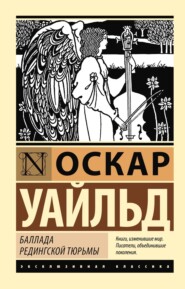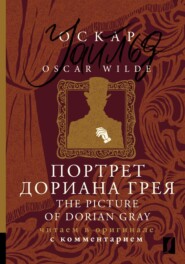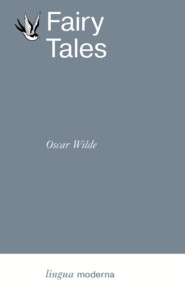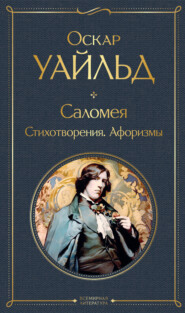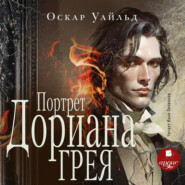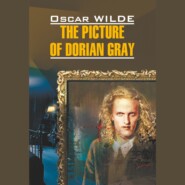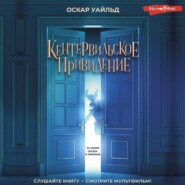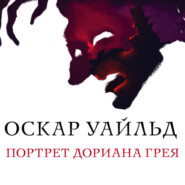По всем вопросам обращайтесь на: info@litportal.ru
(©) 2003-2024.
✖
A Critic in Pall Mall: Being Extracts from Reviews and Miscellanies
Настройки чтения
Размер шрифта
Высота строк
Поля
A fifteen-line sonnet is as bad a monstrosity as a sonnet in dialogue.
Antiquarian books, as a rule, are extremely dull reading. They give us facts without form, science without style, and learning without life.
The Roman patron, in fact, kept the Roman poet alive, and we fancy that many of our modern bards rather regret the old system. Better, surely, the humiliation of the sportula than the indignity of a bill for printing! Better to accept a country-house as a gift than to be in debt to one’s landlady! On the whole, the patron was an excellent institution, if not for poetry at least for the poets;.. every poet longs for a Mæcenas.
The two things the Greeks valued most in actors were grace of gesture and music of voice. Indeed, to gain these virtues their actors used to subject themselves to a regular course of gymnastics and a particular regime of diet, health being to the Greeks not merely a quality of art, but a condition of its production.
One should not be too severe on English novels: they are the only relaxation of the intellectually unemployed.
Most modern novels are more remarkable for their crime than for their culture.
Not that a tramp’s mode of life is at all unsuited to the development of the poetic faculty. Far from it! He, if any one, should possess that freedom of mood which is so essential to the artist, for he has no taxes to pay and no relations to worry him. The man who possesses a permanent address, and whose name is to be found in the Directory, is necessarily limited and localized. Only the tramp has absolute liberty of living. Was not Homer himself a vagrant, and did not Thespis go about in a caravan?
In art as in life the law of heredity holds good. On est toujours fils de quelqu’un.
He has succeeded in studying a fine poet without stealing from him – a very difficult thing to do.
Morocco is a sort of paradox among countries, for though it lies westward of Piccadilly, yet it is purely Oriental in character, and though it is but three hours’ sail from Europe, yet it makes you feel (to use the forcible expression of an American writer) as if you had been taken up by the scruff of the neck and set down in the Old Testament.
As children themselves are the perfect flowers of life, so a collection of the best poems written on children should be the most perfect of all anthologies.
No English poet has written of children with more love and grace and delicacy [than Herrick]. His Ode on the Birth of Our Saviour, his poem To His Saviour, A Child: A Present by a Child, his Graces for Children, and his many lovely epitaphs on children are all of them exquisite works of art, simple, sweet and sincere.
As the cross-benches form a refuge for those who have no minds to make up, so those who cannot make up their minds always take to Homeric studies. Many of our leaders have sulked in their tents with Achilles after some violent political crisis and, enraged at the fickleness of fortune, more than one has given up to poetry what was obviously meant for party.
There are two ways of misunderstanding a poem. One is to misunderstand it and the other to praise it for qualities it does not possess.
Most modern calendars mar the sweet simplicity of our lives by reminding us that each day that passes is the anniversary of some perfectly uninteresting event. It is true that such aphorisms as
Graves are a mother’s dimples or
When we complain,
The primrose wears a constant smile,
And captive takes the heart,
can hardly be said to belong to the very highest order of poetry, still, they are preferable, on the whole, to the date of Hannah More’s birth, or of the burning down of Exeter Change, or of the opening of the Great Exhibition; and though it would be dangerous to make calendars the basis of Culture, we should all be much improved if we began each day with a fine passage of English poetry.
Even the most uninteresting poet cannot survive bad editing.
Prefixed to the Calendar is an introductory note.. displaying that intimate acquaintance with Sappho’s lost poems which is the privilege only of those who are not acquainted with Greek literature.
Mediocre critics are usually safe in their generalities; it is in their reasons and examples that they come so lamentably to grief.
All premature panegyrics bring their own punishment upon themselves.
No one survives being over-estimated.
Henry Wadsworth Longfellow was one of the first true men of letters America produced, and as such deserves a high place in any history of American civilization. To a land out of breath in its greed for gain he showed the example of a life devoted entirely to the study of literature; his lectures, though not by any means brilliant, were still productive of much good; he had a most charming and gracious personality, and he wrote some pretty poems. But his poems are not of the kind that call for intellectual analysis or for elaborate description or, indeed, for any serious discussion at all.
Though the Psalm of Life be shouted from Maine to California, that would not make it true poetry.
Longfellow has no imitators, for of echoes themselves there are no echoes and it is only style that makes a school.
Poe’s marvellous lines To Helen, a poem as beautiful as a Greek gem and as musical as Apollo’s lute.
Good novelists are much rarer than good sons, and none of us would part readily with Micawber and Mrs. Nickleby. Still, the fact remains that a man who was affectionate and loving to his children, generous and warm-hearted to his friends, and whose books are the very bacchanalia of benevolence, pilloried his parents to make the groundlings laugh, and this fact every biographer of Dickens should face and, if possible, explain.
No age ever borrows the slang of its predecessor.
What we do not know about Shakespeare is a most fascinating subject, and one that would fill a volume, but what we do know about him is so meagre and inadequate that when it is collected together the result is rather depressing.
They show a want of knowledge that must be the result of years of study.
Rossetti’s was a great personality, and personalities such as his do not easily survive shilling primers.
We are sorry to find an English dramatic critic misquoting Shakespeare, as we had always been of opinion that this was a privilege reserved specially for our English actors.
Biographies of this kind rob life of much of its dignity and its wonder, add to death itself a new terror, and make one wish that all art were anonymous.
A pillar of fire to the few who knew him, and of cloud to the many who knew him not, Dante Gabriel Rossetti lived apart from the gossip and tittle-tattle of a shallow age. He never trafficked with the merchants for his soul, nor brought his wares into the market-place for the idle to gape at. Passionate and romantic though he was, yet there was in his nature something of high austerity. He loved seclusion, and hated notoriety, and would have shuddered at the idea that within a few years after his death he was to make his appearance in a series of popular biographies, sandwiched between the author of Pickwick and the Great Lexicographer.
We sincerely hope that a few more novels like these will be published, as the public will then find out that a bad book is very dear at a shilling.
The only form of fiction in which real characters do not seem out of place is history. In novels they are detestable.
Shilling literature is always making demands on our credulity without ever appealing to our imagination.
Pathology is rapidly becoming the basis of sensational literature, and in art, as in politics, there is a great future for monsters.
It is only mediocrities and old maids who consider it a grievance to be misunderstood.
As truly religious people are resigned to everything, even to mediocre poetry, there is no reason at all why Madame Guyon’s verses should not be popular with a large section of the community.
A simile committing suicide is always a depressing spectacle.
Such novels as Scamp are possibly more easy to write than they are to read.
We have no doubt that when Bailey wrote to Lord Houghton that common-sense and gentleness were Keats’s two special characteristics the worthy Archdeacon meant extremely well, but we prefer the real Keats, with his passionate wilfulness, his fantastic moods and his fine inconsistence. Part of Keats’s charm as a man is his fascinating incompleteness.
The Apostolic dictum, that women should not be suffered to teach, is no longer applicable to a society such as ours, with its solidarity of interests, its recognition of natural rights, and its universal education, however suitable it may have been to the Greek cities under Roman rule. Nothing in the United States struck me more than the fact that the remarkable intellectual progress of that country is very largely due to the efforts of American women, who edit many of the most powerful magazines and newspapers, take part in the discussion of every question of public interest, and exercise an important influence upon the growth and tendencies of literature and art. Indeed, the women of America are the one class in the community that enjoys that leisure which is so necessary for culture. The men are, as a rule, so absorbed in business, that the task of bringing some element of form into the chaos of daily life is left almost entirely to the opposite sex, and an eminent Bostonian once assured me that in the twentieth century the whole culture of his country would be in petticoats. By that time, however, it is probable that the dress of the two sexes will be assimilated, as similarity of costume always follows similarity of pursuits.
The aim of social comedy, in Menander no less than in Sheridan, is to mirror the manners, not to reform the morals, of its day, and the censure of the Puritan, whether real or affected, is always out of place in literary criticism, and shows a want of recognition of the essential distinction between art and life. After all, it is only the Philistine who thinks of blaming Jack Absolute for his deception, Bob Acres for his cowardice, and Charles Surface for his extravagance, and there is very little use in airing one’s moral sense at the expense of one’s artistic appreciation.
The Æneid bears almost the same relation to the Iliad that the Idylls of the King do to the old Celtic romances of Arthur. Like them it is full of felicitous modernisms, of exquisite literary echoes and of delicate and delightful pictures; as Lord Tennyson loves England so did Virgil love Rome; the pageants of history and the purple of empire are equally dear to both poets; but neither of them has the grand simplicity or the large humanity of the early singers, and, as a hero, Æneas is no less a failure than Arthur.
There is always a certain amount of danger in any attempt to cultivate impossible virtues.
As far as the serious presentation of life is concerned, what we require is more imaginative treatment, greater freedom from theatric language and theatric convention. It may be questioned, also, whether the consistent reward of virtue and punishment of wickedness be really the healthiest ideal for an art that claims to mirror nature.
True originality is to be found rather in the use made of a model than in the rejection of all models and masters. Dans l’art comme dans la nature on est toujours fils de quelqu’un, and we should not quarrel with the reed if it whispers to us the music of the lyre. A little child once asked me if it was the nightingale who taught the linnets how to sing.
Antiquarian books, as a rule, are extremely dull reading. They give us facts without form, science without style, and learning without life.
The Roman patron, in fact, kept the Roman poet alive, and we fancy that many of our modern bards rather regret the old system. Better, surely, the humiliation of the sportula than the indignity of a bill for printing! Better to accept a country-house as a gift than to be in debt to one’s landlady! On the whole, the patron was an excellent institution, if not for poetry at least for the poets;.. every poet longs for a Mæcenas.
The two things the Greeks valued most in actors were grace of gesture and music of voice. Indeed, to gain these virtues their actors used to subject themselves to a regular course of gymnastics and a particular regime of diet, health being to the Greeks not merely a quality of art, but a condition of its production.
One should not be too severe on English novels: they are the only relaxation of the intellectually unemployed.
Most modern novels are more remarkable for their crime than for their culture.
Not that a tramp’s mode of life is at all unsuited to the development of the poetic faculty. Far from it! He, if any one, should possess that freedom of mood which is so essential to the artist, for he has no taxes to pay and no relations to worry him. The man who possesses a permanent address, and whose name is to be found in the Directory, is necessarily limited and localized. Only the tramp has absolute liberty of living. Was not Homer himself a vagrant, and did not Thespis go about in a caravan?
In art as in life the law of heredity holds good. On est toujours fils de quelqu’un.
He has succeeded in studying a fine poet without stealing from him – a very difficult thing to do.
Morocco is a sort of paradox among countries, for though it lies westward of Piccadilly, yet it is purely Oriental in character, and though it is but three hours’ sail from Europe, yet it makes you feel (to use the forcible expression of an American writer) as if you had been taken up by the scruff of the neck and set down in the Old Testament.
As children themselves are the perfect flowers of life, so a collection of the best poems written on children should be the most perfect of all anthologies.
No English poet has written of children with more love and grace and delicacy [than Herrick]. His Ode on the Birth of Our Saviour, his poem To His Saviour, A Child: A Present by a Child, his Graces for Children, and his many lovely epitaphs on children are all of them exquisite works of art, simple, sweet and sincere.
As the cross-benches form a refuge for those who have no minds to make up, so those who cannot make up their minds always take to Homeric studies. Many of our leaders have sulked in their tents with Achilles after some violent political crisis and, enraged at the fickleness of fortune, more than one has given up to poetry what was obviously meant for party.
There are two ways of misunderstanding a poem. One is to misunderstand it and the other to praise it for qualities it does not possess.
Most modern calendars mar the sweet simplicity of our lives by reminding us that each day that passes is the anniversary of some perfectly uninteresting event. It is true that such aphorisms as
Graves are a mother’s dimples or
When we complain,
The primrose wears a constant smile,
And captive takes the heart,
can hardly be said to belong to the very highest order of poetry, still, they are preferable, on the whole, to the date of Hannah More’s birth, or of the burning down of Exeter Change, or of the opening of the Great Exhibition; and though it would be dangerous to make calendars the basis of Culture, we should all be much improved if we began each day with a fine passage of English poetry.
Even the most uninteresting poet cannot survive bad editing.
Prefixed to the Calendar is an introductory note.. displaying that intimate acquaintance with Sappho’s lost poems which is the privilege only of those who are not acquainted with Greek literature.
Mediocre critics are usually safe in their generalities; it is in their reasons and examples that they come so lamentably to grief.
All premature panegyrics bring their own punishment upon themselves.
No one survives being over-estimated.
Henry Wadsworth Longfellow was one of the first true men of letters America produced, and as such deserves a high place in any history of American civilization. To a land out of breath in its greed for gain he showed the example of a life devoted entirely to the study of literature; his lectures, though not by any means brilliant, were still productive of much good; he had a most charming and gracious personality, and he wrote some pretty poems. But his poems are not of the kind that call for intellectual analysis or for elaborate description or, indeed, for any serious discussion at all.
Though the Psalm of Life be shouted from Maine to California, that would not make it true poetry.
Longfellow has no imitators, for of echoes themselves there are no echoes and it is only style that makes a school.
Poe’s marvellous lines To Helen, a poem as beautiful as a Greek gem and as musical as Apollo’s lute.
Good novelists are much rarer than good sons, and none of us would part readily with Micawber and Mrs. Nickleby. Still, the fact remains that a man who was affectionate and loving to his children, generous and warm-hearted to his friends, and whose books are the very bacchanalia of benevolence, pilloried his parents to make the groundlings laugh, and this fact every biographer of Dickens should face and, if possible, explain.
No age ever borrows the slang of its predecessor.
What we do not know about Shakespeare is a most fascinating subject, and one that would fill a volume, but what we do know about him is so meagre and inadequate that when it is collected together the result is rather depressing.
They show a want of knowledge that must be the result of years of study.
Rossetti’s was a great personality, and personalities such as his do not easily survive shilling primers.
We are sorry to find an English dramatic critic misquoting Shakespeare, as we had always been of opinion that this was a privilege reserved specially for our English actors.
Biographies of this kind rob life of much of its dignity and its wonder, add to death itself a new terror, and make one wish that all art were anonymous.
A pillar of fire to the few who knew him, and of cloud to the many who knew him not, Dante Gabriel Rossetti lived apart from the gossip and tittle-tattle of a shallow age. He never trafficked with the merchants for his soul, nor brought his wares into the market-place for the idle to gape at. Passionate and romantic though he was, yet there was in his nature something of high austerity. He loved seclusion, and hated notoriety, and would have shuddered at the idea that within a few years after his death he was to make his appearance in a series of popular biographies, sandwiched between the author of Pickwick and the Great Lexicographer.
We sincerely hope that a few more novels like these will be published, as the public will then find out that a bad book is very dear at a shilling.
The only form of fiction in which real characters do not seem out of place is history. In novels they are detestable.
Shilling literature is always making demands on our credulity without ever appealing to our imagination.
Pathology is rapidly becoming the basis of sensational literature, and in art, as in politics, there is a great future for monsters.
It is only mediocrities and old maids who consider it a grievance to be misunderstood.
As truly religious people are resigned to everything, even to mediocre poetry, there is no reason at all why Madame Guyon’s verses should not be popular with a large section of the community.
A simile committing suicide is always a depressing spectacle.
Such novels as Scamp are possibly more easy to write than they are to read.
We have no doubt that when Bailey wrote to Lord Houghton that common-sense and gentleness were Keats’s two special characteristics the worthy Archdeacon meant extremely well, but we prefer the real Keats, with his passionate wilfulness, his fantastic moods and his fine inconsistence. Part of Keats’s charm as a man is his fascinating incompleteness.
The Apostolic dictum, that women should not be suffered to teach, is no longer applicable to a society such as ours, with its solidarity of interests, its recognition of natural rights, and its universal education, however suitable it may have been to the Greek cities under Roman rule. Nothing in the United States struck me more than the fact that the remarkable intellectual progress of that country is very largely due to the efforts of American women, who edit many of the most powerful magazines and newspapers, take part in the discussion of every question of public interest, and exercise an important influence upon the growth and tendencies of literature and art. Indeed, the women of America are the one class in the community that enjoys that leisure which is so necessary for culture. The men are, as a rule, so absorbed in business, that the task of bringing some element of form into the chaos of daily life is left almost entirely to the opposite sex, and an eminent Bostonian once assured me that in the twentieth century the whole culture of his country would be in petticoats. By that time, however, it is probable that the dress of the two sexes will be assimilated, as similarity of costume always follows similarity of pursuits.
The aim of social comedy, in Menander no less than in Sheridan, is to mirror the manners, not to reform the morals, of its day, and the censure of the Puritan, whether real or affected, is always out of place in literary criticism, and shows a want of recognition of the essential distinction between art and life. After all, it is only the Philistine who thinks of blaming Jack Absolute for his deception, Bob Acres for his cowardice, and Charles Surface for his extravagance, and there is very little use in airing one’s moral sense at the expense of one’s artistic appreciation.
The Æneid bears almost the same relation to the Iliad that the Idylls of the King do to the old Celtic romances of Arthur. Like them it is full of felicitous modernisms, of exquisite literary echoes and of delicate and delightful pictures; as Lord Tennyson loves England so did Virgil love Rome; the pageants of history and the purple of empire are equally dear to both poets; but neither of them has the grand simplicity or the large humanity of the early singers, and, as a hero, Æneas is no less a failure than Arthur.
There is always a certain amount of danger in any attempt to cultivate impossible virtues.
As far as the serious presentation of life is concerned, what we require is more imaginative treatment, greater freedom from theatric language and theatric convention. It may be questioned, also, whether the consistent reward of virtue and punishment of wickedness be really the healthiest ideal for an art that claims to mirror nature.
True originality is to be found rather in the use made of a model than in the rejection of all models and masters. Dans l’art comme dans la nature on est toujours fils de quelqu’un, and we should not quarrel with the reed if it whispers to us the music of the lyre. A little child once asked me if it was the nightingale who taught the linnets how to sing.






